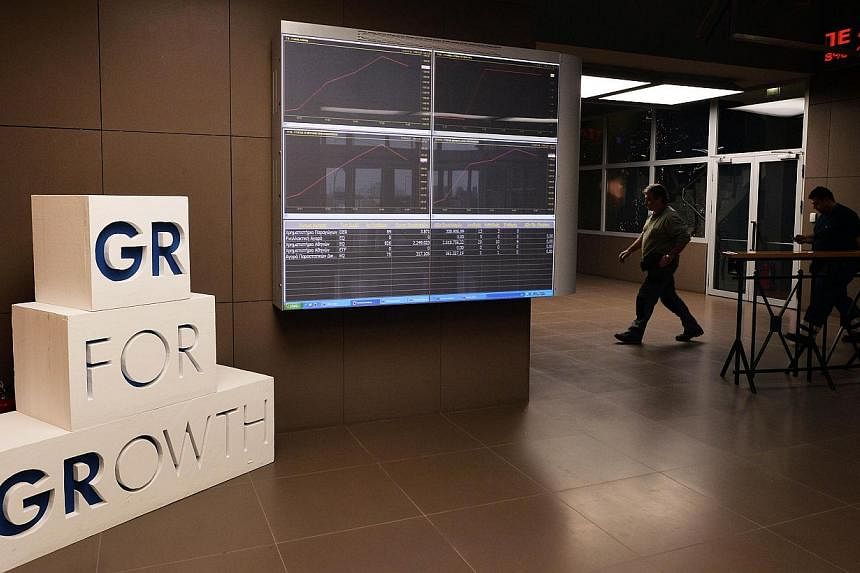What is happening in Greece?
Greek markets tumbled 12.8 per cent yesterday in their steepest daily fall since 1987 as Prime Minister Antonis Samaras brought forward a presidential election due in February to Dec 17.
Mr Samaras said: "Even though we have stabilised the economy and have finally returned to growth, clouds have gathered in Greece over political stability."
Under current austerity policies, Greece's state finances have been brought into order. But the rigours of the four-year bailout programme have seen Greeks' living standards plummet.
His move came as eurozone ministers approved a 2-month extension on the current Greek bailout programme. This gives Samaras breathing space to seek the votes he needs for the presidency ahead of any new agreement with Greece's creditors.
What's at stake?
- While the presidential post is largely ceremonial, if PM Samaras' presidential candidate doesn't win, national elections must be called that the leftist Syriza party - a fierce opponent of Greece's bailout deal with the European Union and IMF - is likely to win. Syriza will want to renegotiate Greece's debt and increase public spending, moves that the EU and IMF will likely oppose.
- But it may also lead to a period of political paralysis if Syriza fails to find partners to form a coalition government.
Should investors be worried?
- The latest turmoil has sent bond yields soaring, meaning that the short-term borrowing costs of the government are now much higher.
- "We are likely to see a lot of volatility over the coming months as investors are likely to avoid Greek assets until the political situation becomes clearer," said IHS Global Insight analyst Diego Iscaro.
- "Greece in the next six weeks may provide to be more important for global markets than Russia/Ukraine was in 2014", said Charles Robertson, chief economist at Renaissance Capital in the Financial Times
REUTERS, NEW YORK TIMES

